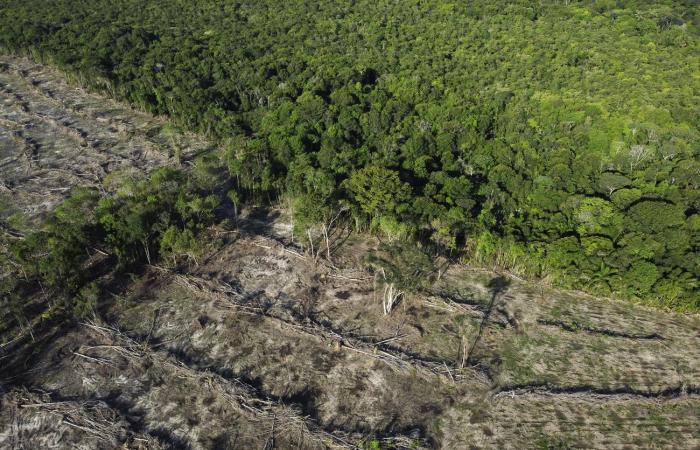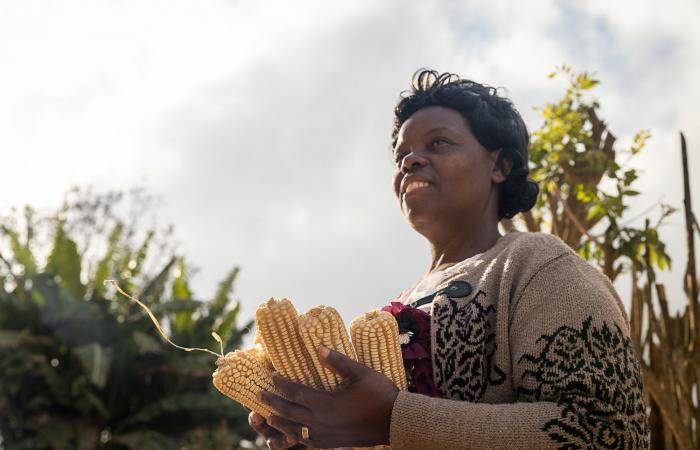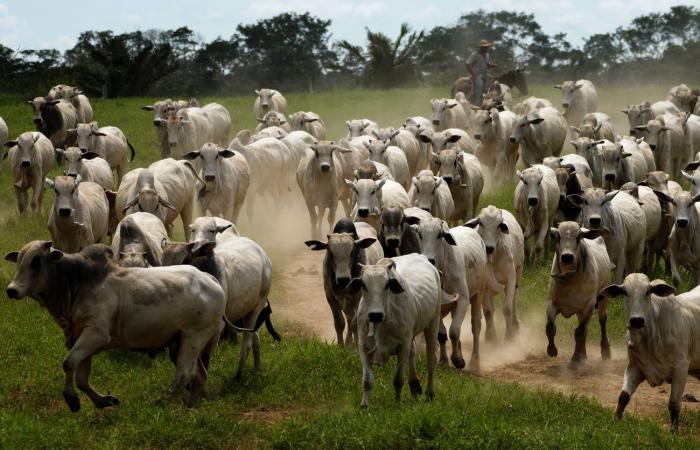Hans Herren on his farm.
@vitisovisfarm
“The game of dependencies within the global food system is deadly,” says Hans R. Herren. From California, this Swiss agronomy researcher, distinguished on multiple occasions, looks back on his lifelong fight against agribusiness.
This content was published on
October 1, 2024 – 08:12
Six a.m., in the Sacramento, California area. By video, Hans R. Herren tells us about his organic farmExternal link. It is there, surrounded by redwoods and oaks, that he cultivates vines and fruits, while raising 150 ducks. “I put into practice what I preach and I see that it works.”
With his commitment to new agriculture, Hans R. Herren has earned a worldwide reputation. The Swiss entomologist is a pioneer of biological control methods. He is the winner of the World Food Prize, obtained in 1995 for having successfully combated the cassava mealybug which made its cultivation almost impossible in Africa.
Small producer Hans Herren with his organic grapes.
@vitisovisfarm
In Paraguay, Hans R. Herren identified an ichneumon (parasitoid wasp) which he introduced on a large scale to the African continent. The cassava parasite found itself a natural predator there, which saved nearly 20 million people from starvation.
swissinfo.ch: What do you remember from this
experience?
Hans Herren: It was a lesson for me.
What have you learned?
That we can act in good conscience, but that this has its limits if we do not involve politics. At the time, I spent a lot of time with politicians to get permission to release my ichneumons.
Did you face skepticism?
Rather, to pressure from the chemical industry. People absolutely wanted to sell their pesticides to fight against cochineal. I defended myself, I even received death threats from chemistry. This is why, even today, I seek change through politics. This transformation must absolutely take place, it cannot be otherwise. And it must come from above.
If you look closely, industrial agriculture is bankrupt. It does not work without subsidies. It is supported by the state, directly or indirectly. Bankruptcy also concerns products. They are high in calories but poor nutritionally: low in vitamins, low in minerals. And most often, they contain pesticide and herbicide residues.
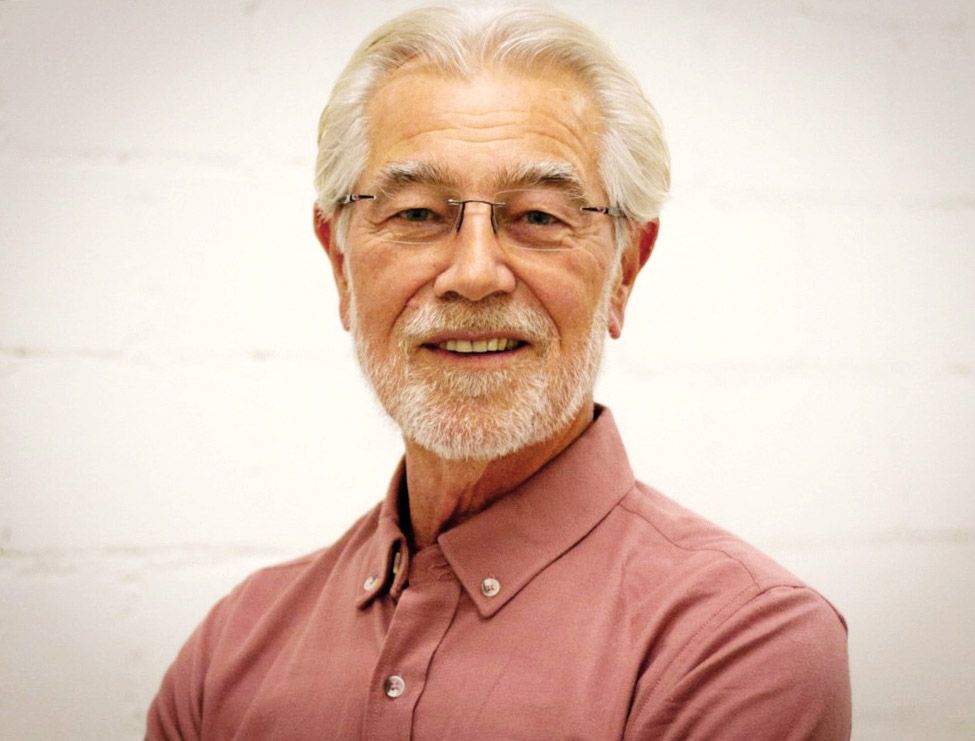
biovision
Hans R. Herren, pioneer of bio
Hans R. Herren is president of the Millennium Institute, founder of the Swiss Biovision Foundation, winner of the World Food Prize and the alternative Nobel Prize “Right Livelihood Award”. He lived for more than 27 years in Africa, where he conducted research on agriculture, health and the environment. Herren has received numerous distinctions for his work and commitment. He and his daughter’s family now operate an organic farm in California.
Are you not making the picture darker?
No, especially since the damage to the climate is added. This type of agriculture releases large quantities of CO2 with the soil it uses. The heaviest costs are those for health, attributable to industrial agriculture. Diabetes, obesity, cancers.
In many places we eat what makes us sick. Some doctors send their patients not to the pharmacy but to the organic market. To make them eat healthily.
But a healthy diet and organic products,
it’s expensive. Many simply cannot afford it.
This is an erroneous idea. Industrial agriculture only produces cheaply in appearance. In reality, it does so at high costs, especially for States, which bear the health bill.
This is why we must ensure that the prices of products from conventional agriculture include all environmental damage such as water pollution, CO2 emissions and especially pesticide residues.

Forest areas deforested for agriculture in the Brazilian state of Para.
Copyright 2023 The Associated Press. All Rights Reserved
This will make food products more expensive. What
solution then?
This has to come from governments. Rising food prices for consumers would lead to riots. The State must therefore intervene through subsidies.
Isn’t that utopian?
It is interesting to note that our approach is well received in Africa above all. With the Millennium Institute, which I have led since 2005, we advise governments using simulations, so that they can achieve the UN sustainability goals on time and efficientlyExternal link. In Africa, we have already advised more than twenty countries, including Nigeria, Kenya, Senegal and Cameroon.
We also work with the German government. And requests are now coming to us from other European countries. Not from Switzerland, unfortunately. We have made some proposals but nothing has happened so far. And most of the goals will probably not be achieved by 2030.
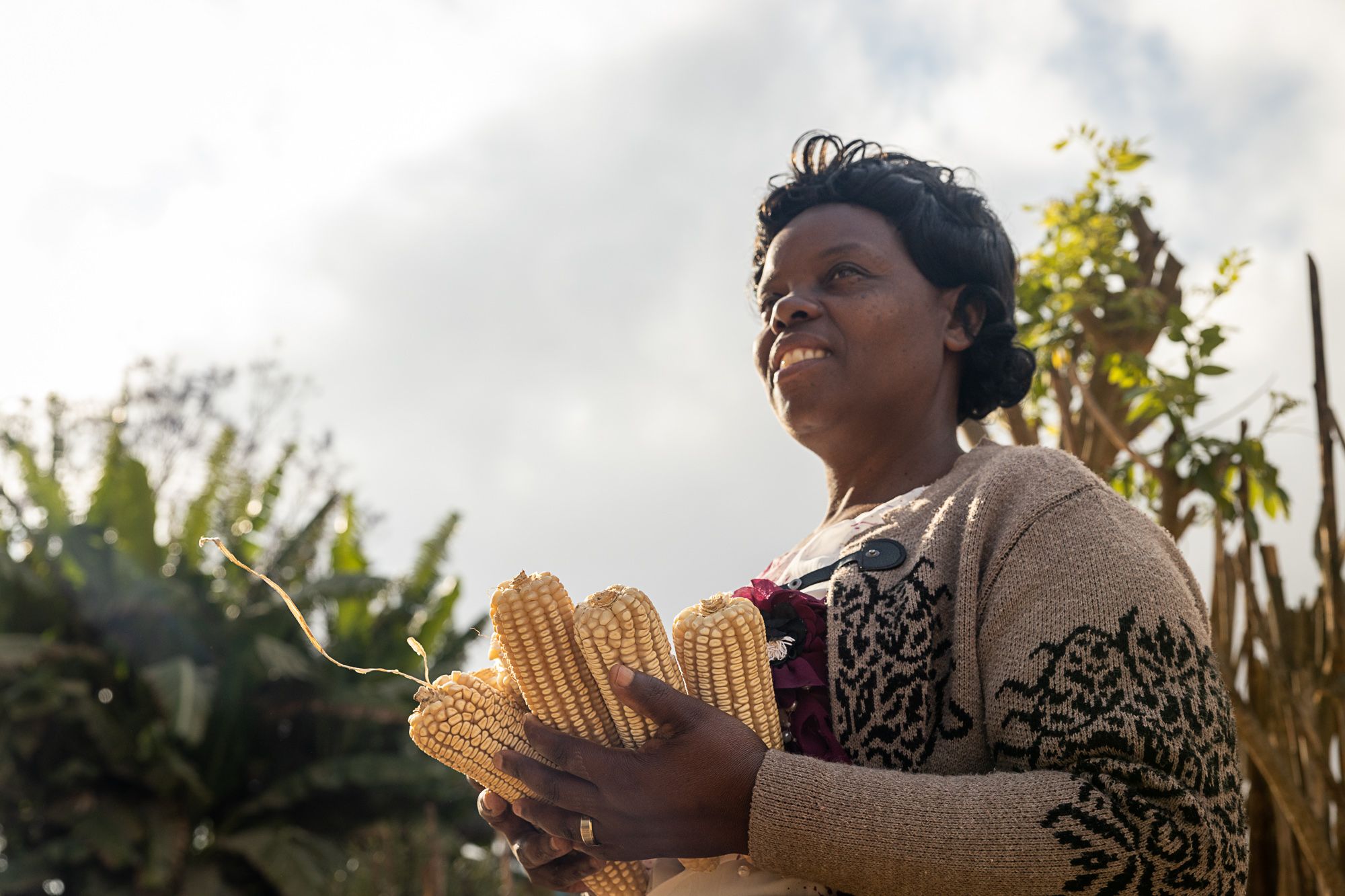
A Tanzanian farmer – organic corn is competitive in Africa.
biovision
Switzerland would, however, have an instrument of
efficient subsidization with its direct payment system. No?
Used wisely, it would be a good thing. But even more information is needed, primarily for farmers. They have a systematic fear of losing. Or that it doesn’t work. We must therefore design research in such a way that it helps the agricultural world.
There are many places where they are not very involved and their knowledge is not of sufficient interest to research. This must change too. Research should support food system transformation through quality, relevant science.
What else does research need to focus on?
Especially on the floors. Soils are crucial and we don’t know much about them. Soil fertility must be developed. Good methods already exist to provide them with more organic matter. With green fertilizers in particular. These would be very useful in Switzerland, where nothing grows for long periods of the year.
Research gaps also lie in the area of weeds, diseases and pest management. Plants, for example, have the ability to defend themselves against diseases and insects. They can attract beneficial insects and repel pests. These are new approaches available today from a technological perspective. But we need to be able to understand them better.
Agriculture is the most important economic sector
old but it remains poorly studied?
Yes, unfortunately. We have lost a lot of time over the last thirty or forty years. It was thought that with biotechnology we could solve problems through genetic manipulation. But that didn’t do anything. We have simply perpetuated the system based on pesticides and generated resistance.
It’s the snake that bites its own tail. New varieties work for a few years, then a new pesticide is needed. This is a good thing for the industry. But we don’t address the root of the problem, we only treat the symptoms.
Your project for global reform of the system
food is titanic. Where are the main obstacles located?
At the level of agro-business and the globalization of the food system. The large agri-food multinationals, fertilizer manufacturers and food giants have little interest in a food system with local dimensions and based on natural bases. They have everything to lose.
Economic freedom prevails and the world is
fed. Where is the harm?
What benefits industry often harms farmers and consumers, in other words, humans. We already experience the result every day: droughts, floods and other consequences of climate change.
But can we feed the world without fertilizer or
pesticides?
In the long term, we have no choice. Nutrients are of course necessary, but the right nutrients. It’s about developing soil life. Farmers have the opportunity to do it themselves through natural means.
What is important is to grow healthy plants, in healthy soils. They are then more resilient in the face of insects, diseases and environmental challenges, which are increasingly pressing with climate change. And in case preventive measures are not enough, there are also organic products against insects and diseases.
You rely on local production. But why
couldn’t the great agricultural nations feed the rest of the world?
Apart from the fact that monocultures are very vulnerable, as we currently see with bananas, another problem arises at the level of exporters. They produce less for their own population and destroy the landscape. In Brazil, deforestation for the production of cheap meat for America and Europe, as well as for the export of gigantic quantities of soy and corn, is not only a problem for the country itself. It is also for Europe.
The importation of livestock feed has a very negative impact on the soil. Livestock produce too much manure and therefore too much nitrogen fertilizer. The Netherlands is experiencing a real nitrogen crisis. The manure and slurry from cows and pigs should actually return to Brazil.

A cowboy drives a herd of cattle in the state of Acre, Brazil.
Copyright 2023 The Associated Press. All Rights Reserved
Translated from German by Pierre-François Besson




